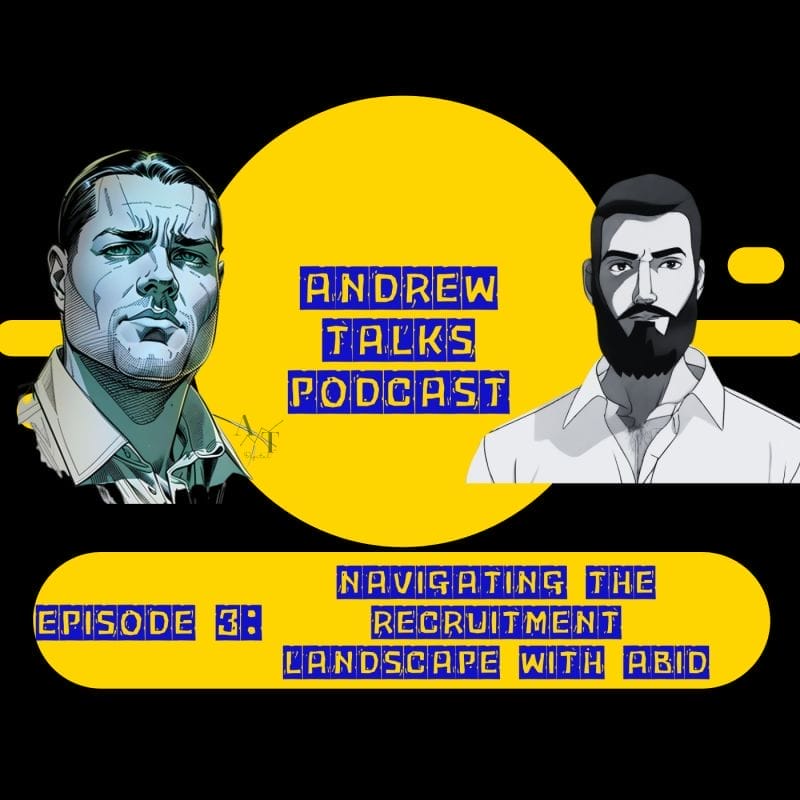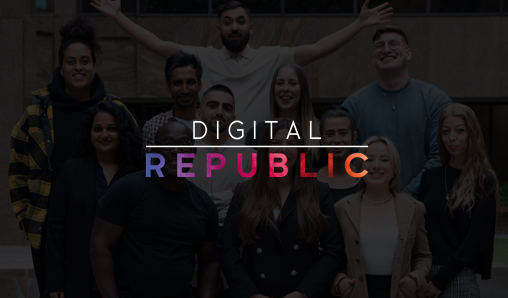
7 Science-Backed Habits Of The Most Successful Job Seekers
Originally posted by Tony Ewing
One of my best friends is an outrageously successful job seeker. Regardless of what’s gone on around him, this guy can get and keep a good job. It could be a pandemic, a terrorist attack or a world domination plot by SPECTRE. Whatever the weather, he often moves from one position to a better one, leaving everyone mourning his departure. But while I attribute my friend’s success to his talent and brilliant personality, there’s more to it.
There are lessons anyone can take from observing him that are also backed by the data. Here are 7 of them:
Make job seeking a habit. Yes, job-seeking should, itself, become a habit. Yet, understanding why and how, takes some explaining. All habits contain three components: a goal, a trigger and an action. Most of us see getting a job as the “goal” and job-seeking as the “action”. The “trigger” becomes leaving or losing the job in the first place. Yet, according to my friend—and the data—this thinking is flawed. Our goal should be ‘employability,” since this most powerfully shapes our personal brand. And that brand is what researchers have found makes us better candidates. Our trigger should then be “every new, marketable skill we can learn”. And our action should be the “exploration of opportunities”. Of course, mastering habits involves finding triggers that make us take actions even without being aware of the goal. In this context, it means making every new skill we learn (on the job, at home, etc.) into a trigger. It also means thinking about how that skill will build your personal brand. As an example, suppose you develop a proposal or put lots of hours into editing a video at work. If you note the skills involved and do a quick internet search, you’ll immediately learn the skill’s value.
 Regularly inventory your skills. Obviously you’ve tons of skills already, so you’ll need to start by long-listing them. This, in turn, feeds an understanding of who you are, what you know and what value you can offer. Thus, make it a regular habit to update your resume (or some document) with new skills. Lists, in particular, help our brains avoid jumbling everything together. This is especially important when you’re under duress. For example, if you lost your job due to pandemic policies, you’re likely stressed. That stress can prevent you from recalling all your skills and experiences in a coherent way. So don’t plough into a job search. Instead, make a long list of skills. It will enable the later, strategic creation of shorter, targeted lists. With these targeted lists, you can tailor your resume for specific employers. Indeed, from a branding perspective, more concentrated and relevant skill lists are more impactful.
Regularly inventory your skills. Obviously you’ve tons of skills already, so you’ll need to start by long-listing them. This, in turn, feeds an understanding of who you are, what you know and what value you can offer. Thus, make it a regular habit to update your resume (or some document) with new skills. Lists, in particular, help our brains avoid jumbling everything together. This is especially important when you’re under duress. For example, if you lost your job due to pandemic policies, you’re likely stressed. That stress can prevent you from recalling all your skills and experiences in a coherent way. So don’t plough into a job search. Instead, make a long list of skills. It will enable the later, strategic creation of shorter, targeted lists. With these targeted lists, you can tailor your resume for specific employers. Indeed, from a branding perspective, more concentrated and relevant skill lists are more impactful.
Continuously manage your resume. There are dozens of resume tips out there like the one I just gave. Yet, I think regularly keeping the content and structure up to date with what the market wants summarizes most of them. Thus, check all the do’s and don’ts lists online. Those change over time with employer demands. Evidently, however, this isn’t obvious. A slight majority of Post-COVID job seekers have indicated in surveys they can’t even identify the ideal resume format. Clearly, most of them are out of practice. But, when examined more closely, the finding seems psychological. Many job seekers are unwilling to adjust their resumes or change jobs, even when they’ve lost their jobs. As I discuss below, there’s a common mental hangup that probably causes this. But, even without addressing that, one can heed timeless, evergreen resume tips. Brevity, action verbs, no personal pronouns, skills that fit the specific job you’re applying for, and using numbers, are just a few of them. All these tips will help you increase your chances dramatically. In any case, your aim here is to make the resume fit the prevailing, most attractive pattern anticipated by employers. After all, whether it’s a computer or a human being reviewing your resume, both seek patterns. Keywords, familiar phrasing, order, length, action words, etc., all lower the mental work anyone (or anything) must do to find us.
 Devise a job-seeking strategy. A strategy is a complete contingent plan that aims to solve a specific challenge. Successful job seekers realize their efforts should always involve devising and executing strategies—big ones and little ones. Yet, many people confuse strategies with goals. A strategy, however, is what’s required to reach a goal successfully. For example, we need plays in team sports to score goals, given the opposing team. The play is the coach’s strategy. Similarly, to get hired, we need a strategy for contending with reduced hiring budgets, uncertainty among employers and other job seekers. Unfortunately, many of us ignore this strategic formation step. We think it’s enough to ask around, contact friends of friends or upload our resumes to websites. Such actions are necessary, but they need a contingent plan to ensure our chances of success are as high as possible. For example, suppose you could work in a range of software engineering positions. You might have been talented enough to be a frontend, backend or full-stack engineer—but, in truth, the positions are distinct. You, therefore, need a distinct strategy for approaching each different position. Why? Different skills. Different tasks. Different trajectories. Perhaps even different geographies. Moreover, while creating different strategies might seem like lots of work, it pays off. To successful job seekers, this simplifies the bigger process of search and also reduces your stress. It also satisfies your brain’s desire to execute according to a pattern. Moreover, just as I said about the previous habit, it also meets the employers’s need for patterns. Indeed, apart from all that, strategizing to suit the challenge gives you more confidence in writing cover letters and communicating your skills.
Devise a job-seeking strategy. A strategy is a complete contingent plan that aims to solve a specific challenge. Successful job seekers realize their efforts should always involve devising and executing strategies—big ones and little ones. Yet, many people confuse strategies with goals. A strategy, however, is what’s required to reach a goal successfully. For example, we need plays in team sports to score goals, given the opposing team. The play is the coach’s strategy. Similarly, to get hired, we need a strategy for contending with reduced hiring budgets, uncertainty among employers and other job seekers. Unfortunately, many of us ignore this strategic formation step. We think it’s enough to ask around, contact friends of friends or upload our resumes to websites. Such actions are necessary, but they need a contingent plan to ensure our chances of success are as high as possible. For example, suppose you could work in a range of software engineering positions. You might have been talented enough to be a frontend, backend or full-stack engineer—but, in truth, the positions are distinct. You, therefore, need a distinct strategy for approaching each different position. Why? Different skills. Different tasks. Different trajectories. Perhaps even different geographies. Moreover, while creating different strategies might seem like lots of work, it pays off. To successful job seekers, this simplifies the bigger process of search and also reduces your stress. It also satisfies your brain’s desire to execute according to a pattern. Moreover, just as I said about the previous habit, it also meets the employers’s need for patterns. Indeed, apart from all that, strategizing to suit the challenge gives you more confidence in writing cover letters and communicating your skills.
Go for jobs outside your comfort zone. Another post-COVID-19, skills survey has found 56% of job seekers look for jobs in exactly the same roles, even if those roles are, well…outmoded. In other words, there might be reasons you lost your job that are unrelated to you, your company or your boss. For example, COVID-19 quarantines. At the same time, it might be what you do is no longer in demand. This means understanding how your skills might transfer—which is part of the next habit. In any case, a common mental hangup, mentioned in Point 3 above, is our refusal to put in the work in shifting jobs. This comes from a mental hangup called loss aversion. In other words, we fear losing something in exchange for what we see as a gamble. It all depends upon how we value what we’re losing—say, the type of job or position we’re used to. Yet, funny enough, we often over-estimate the value of what we’re losing. Of course, if you loved the job you lost, it makes sense to try finding another like it. But such jobs may be gone, never to return. If you get stuck on that, you’ll find yourself hobbling your job effort. Thus, the same, subconscious, forces that prevent you from managing your resume also impede you leaving your comfort zone.
Come with a value proposition. The same survey speaks to how we identify and articulate our skills. It’s one thing to make a long list of our skills. It’s another thing to make sure we understand which skills from that list are transferrable. Transferrable skills are those we could perform in any industry or role and add value doing so. At the same time, transferrable skills may change over time. For example, accounting is typically a hard transferrable skill. Yet, many companies have replaced human-based accountancy with computer systems. So, while accountancy is a great skill, it might not be transferrable to a given employer right now. As a result, even accountants nowadays need soft, transferrable skills. Soft skills like leadership, teamwork, etc. tend to be impossible to automate and hard to find in candidates. Thus, packaging them with required skills creates a value proposition. But, to present this value proposition effectively, we need confidence. Indeed, other research has shown confidence is essential for both obtaining a job and advancing in one. How do we become more confident? Start by shaking off any nagging feelings of failure from losing your last job. Then, once again, resort to having a well-organized strategy for attack.
Learn to articulate your skills. Surveyed job seekers also indicated they’re struggling to articulate their transferrable skills. Yet, doing so is key. For example, researchers from Berkeley have found vocalizing your skills enhances your value in the eyes of recruiters by a wide margin. And outrageously successful people are skilled in the habit of articulating their skills. They start by asking themselves a number of key questions: What is the employer really asking for? What soft skills seem essential to make this role work? Do I have these skills? If so, how can I put them into a sentence? What am I, if I had to explain it to my mom? In other words, the key to articulating one’s skills is reading between the lines. Thus, one of your key tasks is to scrutinize the job adverts. For example, ask yourself whether they’re looking for a labourer or a leader. Are they looking for a software engineer or a manager of a team? Do they want a nursing technician or someone to manage a shift of technicians? Friend of a friend referrals make this task even easier. All you need do is ask the person: “Are you looking for a laborer or a leader?”
So it seems my outrageously successful friend does a lot more than smile and ashake hands to get jobs. To him, job-seeking as an art form and a science, but one that takes practice and continual improvement. Again, that’s because employability and personal brand value is his mark—not just getting the job. That mindset has made him successful, even amidst the presence of SPECTRE, let alone COVID-19.
Found these tips useful? Check out this blog too!
Digital analytics, data science, cloud, programmatic or optimisation expert, and looking for a job at the moment? Check out our latest live vacancies here
Contact us submitting a quick form here. We are here to support you!




